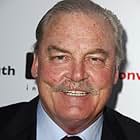The Rat
- Episode aired Mar 20, 2006
- TV-14
- 1h
With the pipe to the infirmary replaced and Lincoln's life hanging in the balance, Michael must rethink his plan to escape and save his brother's life. A fellow inmate may hold the key to pr... Read allWith the pipe to the infirmary replaced and Lincoln's life hanging in the balance, Michael must rethink his plan to escape and save his brother's life. A fellow inmate may hold the key to preventing Lincoln's execution.With the pipe to the infirmary replaced and Lincoln's life hanging in the balance, Michael must rethink his plan to escape and save his brother's life. A fellow inmate may hold the key to preventing Lincoln's execution.
- Director
- Writers
- Stars
- Director
- Writers
- All cast & crew
- Production, box office & more at IMDbPro
Storyline
Did you know
- TriviaMatt DeCaro (Corrections Officer Roy Geary) also played a brief role as a Correctional Officer In U.S. Marshals (1998).
- GoofsWhen Lincoln and Michael are playing gin rummy, Michael takes two turns in a row without Lincoln playing. When Lincoln exposes Michael's hand Michael only has seven cards. Playing gin he should have ten.
- Quotes
[Lincoln is in the infirmary]
C.O. #2: Why isn't he cuffed to the table?
Dr. Sara Tancredi: What's he going to do? Steal a cottonball?
- SoundtracksMain Titles
Composed by Ramin Djawadi
The tension within the group of escapees, especially with that unbearable creep T-Bag pulling a knife on Michael, works as a reminder of how fragile this alliance really is. T-Bag isn't just the agent of chaos-he's the embodiment of the savagery that comes out when desperation takes over. The fact that his threat gets interrupted by a guard creates an interesting contrast between internal and external danger: in "Prison Break," sometimes the deadliest enemy isn't the prison system-it's the guy right next to you. The frantic pace of their retreat back to square one is electrifying because it flips the show's usual dynamic. We're used to seeing these characters move toward freedom, but here, they're running from their own failure, trying to cover up the tracks of a plan gone wrong. And, in a way, that's even more gut-wrenching.
Michael is on the verge of an emotional breakdown. His frustration is palpable-not just because the plan failed, but because time is running out with cruel, relentless precision. His moral dilemma when he asks Sara for help is a vulnerable moment that adds layers to their relationship. It's no longer just a dynamic of manipulation and convenience-there's a genuine connection there, even if Michael, true to his character, tries to hide it under the facade of the mission. The dialogue where Sara admits that asking her father for clemency would only hurt Lincoln is heartbreaking because it exposes the limits of her influence, reinforcing the show's recurring theme: the system is a machine that crushes even those trying to do the right thing.
The moment when Michael hears Westmoreland say, "It's not the lightning that kills you, it's the wait," is one of the episode's most powerful lines. The show has always handled the idea well that the real terror isn't in the final act of execution, but in the suspense leading up to it. And that's when Michael, in a flash of the genius we know, realizes there's still a loophole. The plan to sabotage the electric chair with a rat is as absurd as it is brilliant, and the contrast between its almost crude simplicity and the massive impact it could have is what makes "Prison Break" so fascinating. The detail of him literally "grabbing a rat" while Bellick is doing the same, in a different sense, spying on Michael through Tweener, is a subtle but effective metaphor: in this prison, everyone's a rat in a desperate race-for freedom, power, or survival.
Bellick, as always, is the guard dog of the system, driven by an almost childish sadism, but paradoxically, he's also a victim of the very structure he defends. The way he sidesteps bureaucracy to fix the electric chair says a lot: he doesn't just want to maintain order-he craves the feeling of absolute control, even if it means trampling rules that supposedly protect the system itself. The episode builds this tension with ruthless precision, intercutting Michael and Veronica's race against time with scenes of LJ watching helplessly as the countdown to his father's execution plays out on TV. It's a reminder that the impact of injustice doesn't stop at the prison walls-it stretches like a shadow over everyone on the outside.
The climax, with Lincoln being taken to the electric chair, is a gut punch. The direction nails it by not holding back on the visual details: the cold, bureaucratic ritual of preparing a man to die is shown without any gloss, which makes it all the more harrowing. Lincoln's empty stare, mixed with Michael and Veronica's restrained grief, creates emotional tension that goes beyond the obvious question of "Is he going to die?" The real weight lies in what that scene represents: the failure of justice, the collapse of hope, the temporary triumph of corruption.
But it's that word-temporary-that keeps the thread of hope alive. Because even when the show throws us into the abyss of despair, there's always the feeling that Michael has one more card up his sleeve. And that's what makes "Prison Break" addictive: the certainty that no matter how lost the game seems, the next move could flip the entire board.
- pinkmanboy
- Feb 3, 2025
- Permalink
























